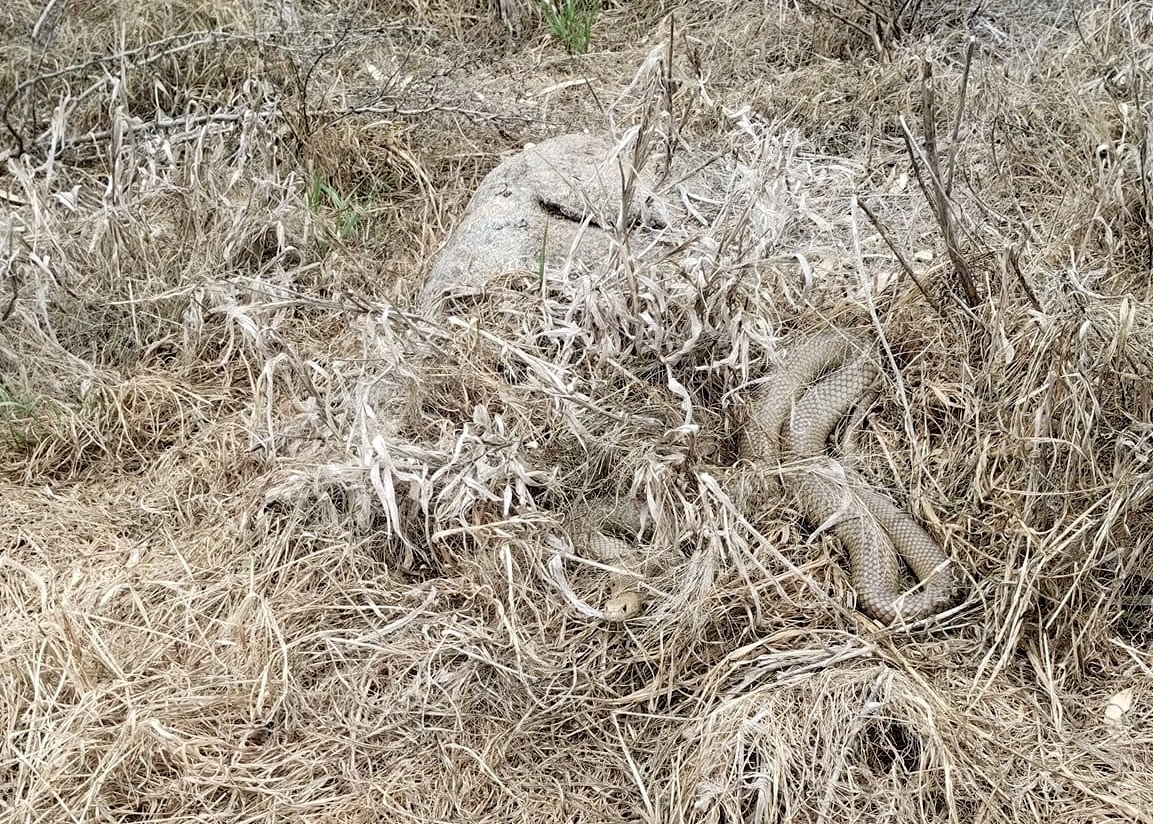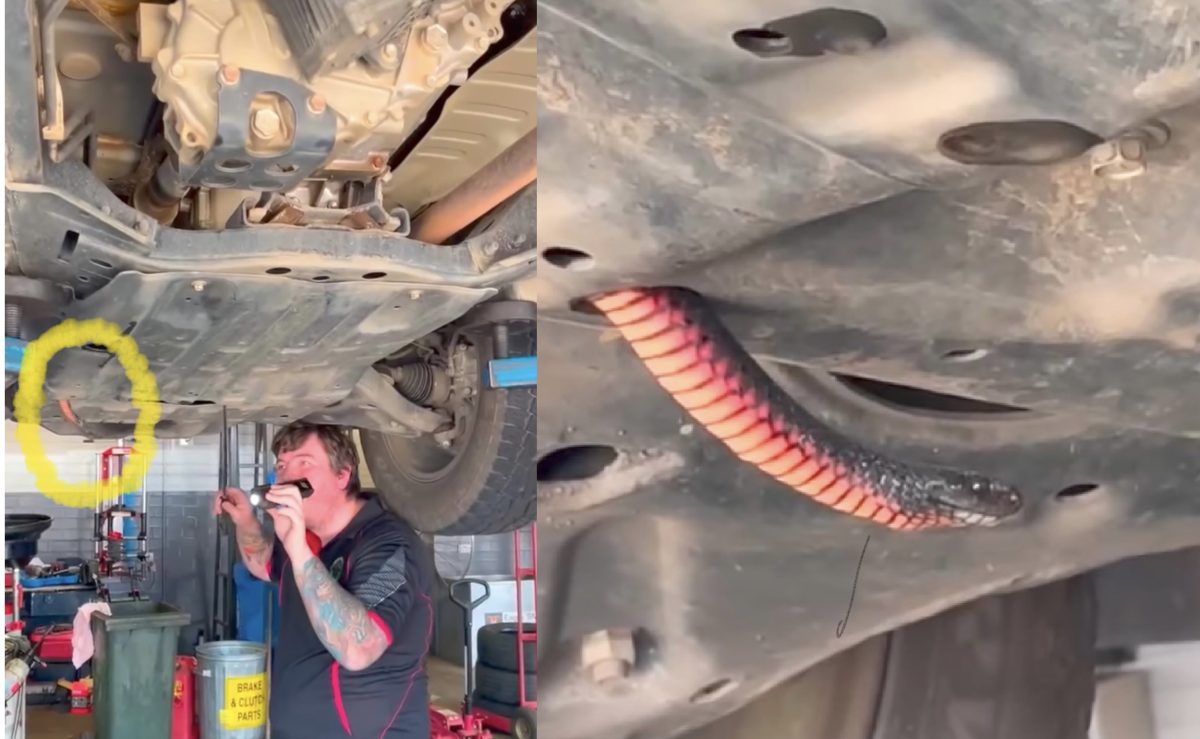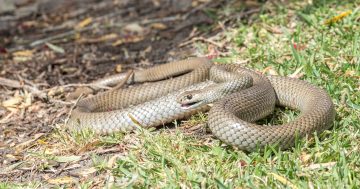
An eastern brown snake was spotted in Explorer Park at Boorooma on the weekend. Photo: Jan Pittard.
Wagga resident Jan Pittard was walking her dog ‘Bloke’ in Explorer Park on the hill at Barooma when something in the long grass caught his attention.
“The dog saw it first. We’d just left the off-leash area and had him back on a lead so fortunately we had no trouble restraining him,” Jan said.
“He was sniffing around and trying to get to something, so I looked to see what he was interested in – and lo and behold, there was this pair of black beady eyes and this forked tongue poking out of the grass.
“It was sticking its tongue out and rearing up a little bit like you see them do in nature documentaries.”
Jan and her husband estimated that the enormous brown snake was around two metres long and she snapped a quick pic before steering Bloke away from the potential danger.
“Maybe it was naive thinking, but I thought, I’m still far enough back that it’s not going to lunge at me, so I took a picture on my phone, and then it just looked really p****d off and slithered away.”
The couple warned other walkers enjoying the park and reported the snake to Wagga City Council through the ‘Snap, Send and Save’ app.
Australia is famously home to some of the world’s most deadly reptiles and the eastern brown snake is considered the world’s second-most venomous land snake and is responsible for causing the greatest number of lethal snakebites in Australia.
In reality though, Australia has far fewer deadly snake encounters than many other countries. On average, there are around 3000 snakebite incidents Down Under each year, however, very few end in fatality with an average of two to three deaths each year.
Very few snakes will attack without being provoked and the best advice to avoid being bitten is to stay out of their way and give them plenty of space.
The most seen serpents in the Riverina are the eastern brown, the docile but dangerous red-bellied black snake, tiger snakes and copperheads.

Josh Thompson had to put a car on a hoist to remove a cheeky red-bellied black snake late last year. Photo: Josh’s Reptile Relocation.
When the temperature drops snakes retreat to a hiding place and enter a dormant state called brumation in which their metabolism slows and they stop eating.
As the weather warms, they get back out hunting, enjoying the sun and snacking on mice, lizards and frogs.
During extremely hot days, snakes are more likely to seek refuge under houses, in garages and, occasionally, in backyard pools.
New developments on the edges of town are the most likely urban environment to encounter snakes as we push further and further into their habitat.
Wagga snake catcher Josh Thompson said his phone had been ringing since August and he offered a few tips for the season.
“Start mowing those winter lawns and clearing backyards,” he said.
“Start trimming gardens back off the ground so they won’t stick around and hide, and check first aid kits and make sure you have at the very least a bandage.
“And keep my number handy!”
Original Article published by Chris Roe on Region Riverina.









